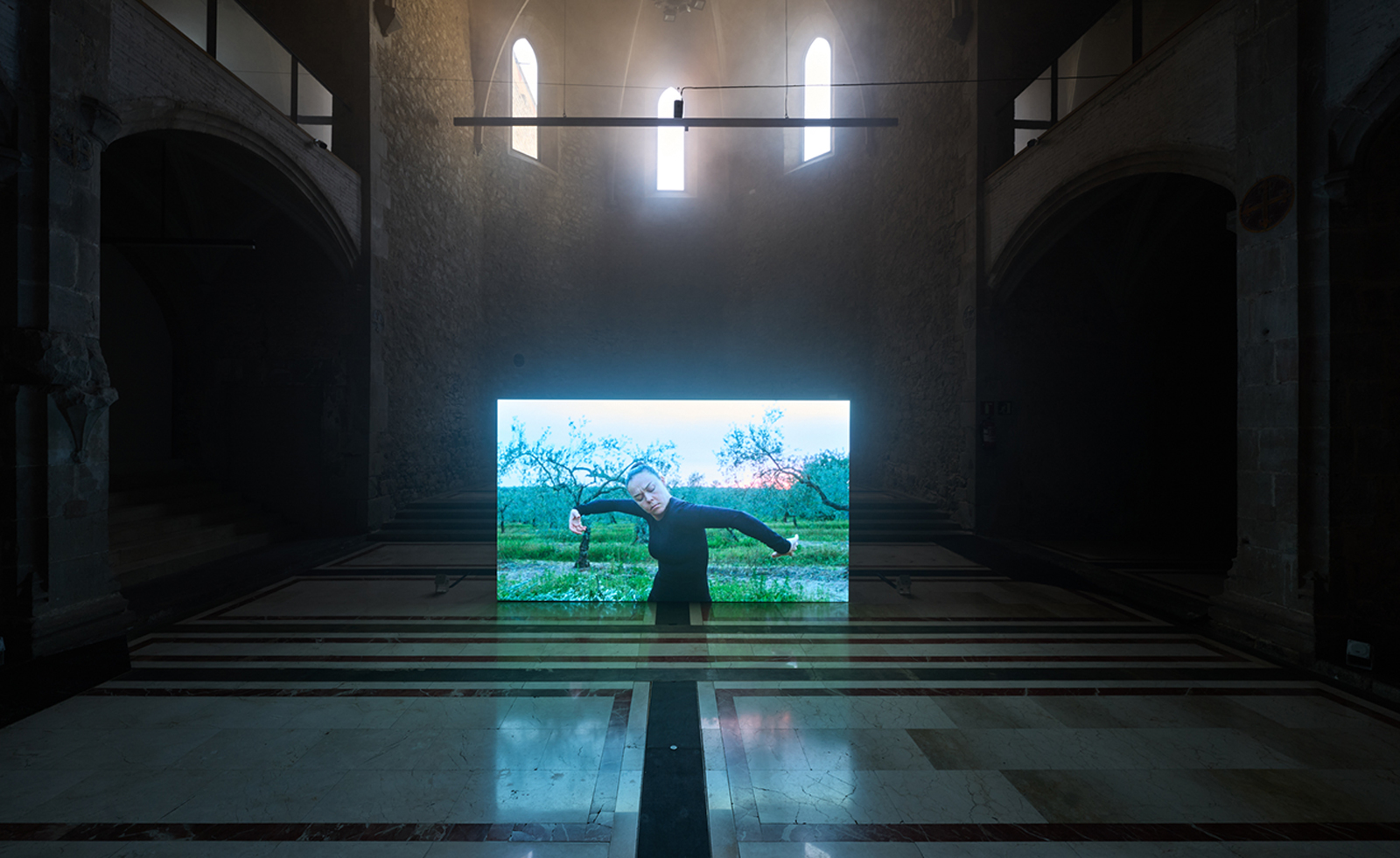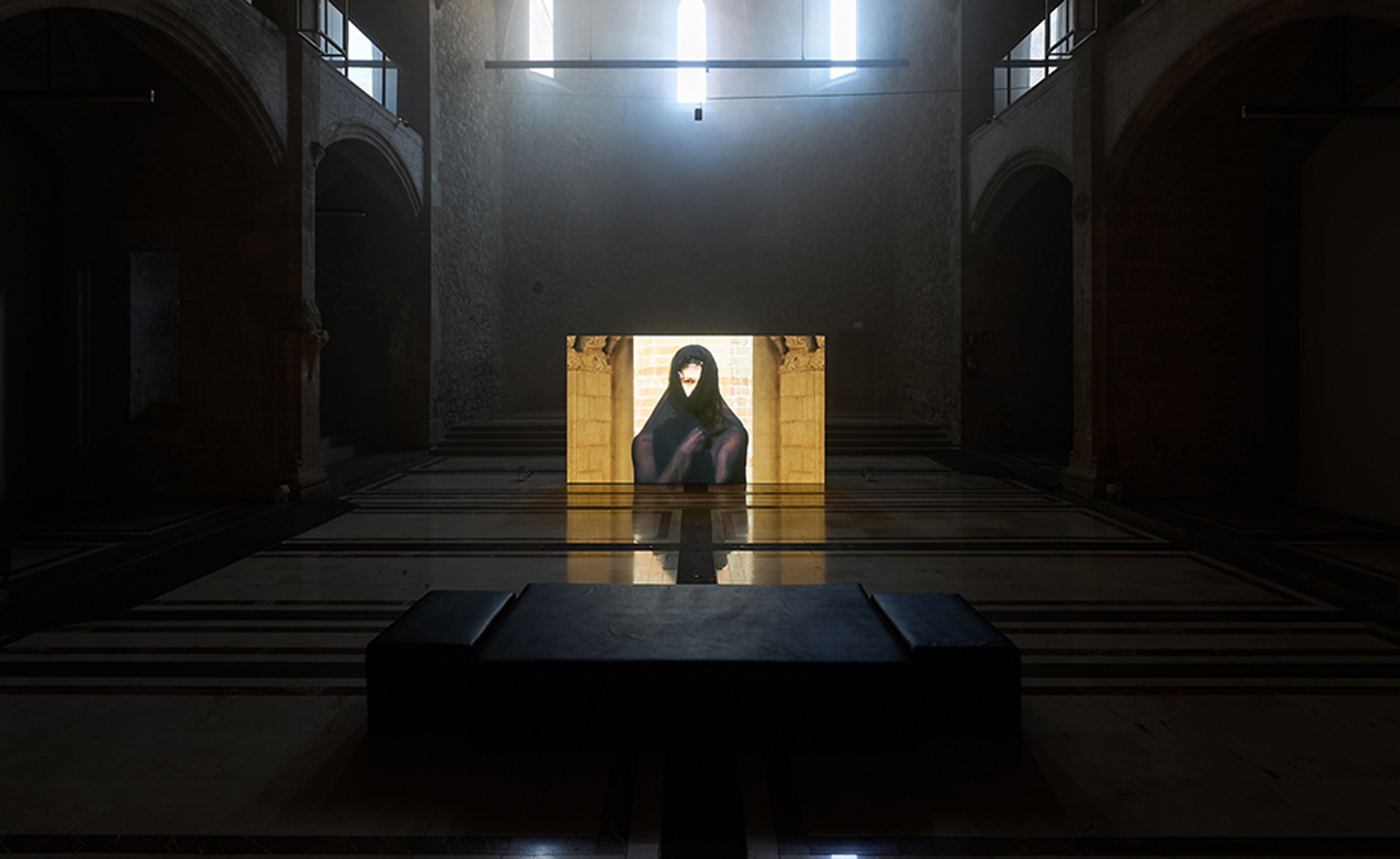Wu Tsang reinterprets Carmen's story in Barcelona
Wu Tsang rethinks Carmen with an opera-theatre hybrid show and a film installation, recently premiered at MACBA in Barcelona (until 3 November)

Receive our daily digest of inspiration, escapism and design stories from around the world direct to your inbox.
You are now subscribed
Your newsletter sign-up was successful
Want to add more newsletters?

Daily (Mon-Sun)
Daily Digest
Sign up for global news and reviews, a Wallpaper* take on architecture, design, art & culture, fashion & beauty, travel, tech, watches & jewellery and more.

Monthly, coming soon
The Rundown
A design-minded take on the world of style from Wallpaper* fashion features editor Jack Moss, from global runway shows to insider news and emerging trends.

Monthly, coming soon
The Design File
A closer look at the people and places shaping design, from inspiring interiors to exceptional products, in an expert edit by Wallpaper* global design director Hugo Macdonald.
The story of Carmen is famously marked by death. Written in 1875 by composer Georges Bizet, the opera’s title character is presented as both a powerful force and a troublesome seducer. In its traditional telling, Don José is haplessly led astray by Carmen; her murder at his hands framed as the result of her own actions. It has been reinterpreted many times over the years, most recently, by artist and filmmaker Wu Tsang, whose experience as director at Zurich’s Schauspielhaus brings a rich insight into live performance.
Tsang has been researching the story for the last eight years, culminating in an opera-theatre hybrid show with interdisciplinary artist group Moved by the Motion, and a film installation that has recently premiered at MACBA in Barcelona (until 3 November 2024). The film installation ‘La gran mentira de la muerte’ takes death as its central theme, exploring the multiple ways in which this threads through Carmen’s story. In the creation of these works, Tsang has studied both flamenco and classic interpretations of the opera and wanted to build a bridge between them as someone straddling multiple art forms.

View of ‘La gran mentira de la muerte’ (The big lie of death) at MACBA
Wu Tsang is particularly interested in the parallels between flamenco and bullfighting, which in different ways exude death as performance
‘Carmen has always drawn me in,’ she tells me. ‘There are all these different associations we have in the pop culture imagination about Carmen. For over a century we have been continuously drawn to her character. Many different people have claimed this character: she’s feminist, or she’s a symbol of freedom. She’s also a conduit for all kinds of misogyny because in the story she’s always sacrificed. She has to die because of what she represents, because of her freedom.’
For ‘La gran mentira de la muerte’, Tsang has invited collaborative performers to reinterpret the story: flamenco dancers Rocío Molina, José ‘El Oruco’ and Yinka Esi Graves; performance artist and dancer Tosh Basco; and bullfighter Vanessa Montoya. She is particularly interested in the parallels between flamenco and bullfighting, which in different ways exude death as performance.

View of ‘La gran mentira de la muerte’ (The big lie of death) at MACBA
‘There are many deaths in Carmen. The most obvious being her own. I was also thinking about filmmaking and the capture of performance as a kind of death,’ says Tsang. ‘As a video artist, I’ve been focused on performance filmmaking for a number of years, and I like to think of ways in which the film can interpret the experience of the performance. Flamenco is something that in its essence challenges the idea of being captured. It’s a very live art form.’
For the film’s multi-channel, spatialised sound, Tsang looked to the tension and suspense created by music in horror movies. Music has also been an important factor in retelling the story for the stage, with composers Andrew Yee and Asma Maroof’s new theme for Don José reflecting his jealousy as a driving factor within the original plot. This reasserts his autonomy and violence within the story, rather than focusing upon Carmen as the disrupting force that has somehow corrupted him. Tsang notes how even Carmen’s theme, played when she enters the stage, serves to highlight her as dangerous.
‘She represents a kind of non-Europeanness, as a gypsy who participates in an alternative lifestyle,’ says Tsang. ‘What does it mean in the Western, European sense for someone like her to be both the hero and be sacrificed? What is our obsession with needing to kill a person like her?’
Receive our daily digest of inspiration, escapism and design stories from around the world direct to your inbox.
‘La gran mentira de la muerte’ (The big lie of death) is at MACBA in Barcelona until 3 November 2024
Emily Steer is a London-based culture journalist and former editor of Elephant. She has written for titles including AnOther, BBC Culture, the Financial Times, and Frieze.